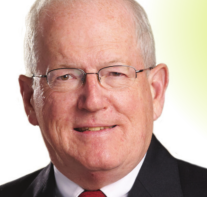Recent study puts New Hampshire voting rules in a misinformed light
There is a lot of focus on elections and election law right now. The reasons seem to be simple and complex at the same time. First, Americans treasure their democracy and right to pick their leaders, and do not want that right compromised. Second, former President Trump and his false election denials have kept the issue front and center when it should not have been.
A Northern Illinois University study recently ranked states on the ease of voting.
New Hampshire was ranked last, behind even Mississippi. The academics, two from Illinois and one from China, a well-known hotbed of democracy, rated all states on a number of factors in coming up with the overall ranking.
While one is tempted to ask “So what?” the study was picked up by The New York Times and Channel 9, which departed from its usual practice and actually did a lame-brained editorial on the subject. This is important because if people actually think it is hard to vote here they may be discouraged from voting.
Former Secretary of State William Gardner, appearing before the Voter Confidence Committee in early October, sought to refute the premises of the study and its conclusions. He pointed out a few of the criteria on which the study based its conclusions.
They included the right of incarcerated felons to vote, the ability of 16-year-olds to preregister to vote, the lack of “voting centers,” which states which vote on a county basis have (ignoring the fact that New Hampshire votes on a town or city ward basis), and the lack of enforcement of voter ID requirements (although voter ID was not favored).
According to Gardner, the top-rated state, Oregon, which has vote by mail, was ahead of New Hampshire in turnout prior to its adoption of vote-by-mail and since has trailed our state every election. In fact, none of the 10 states that lead the list in the study has a higher voter turnout than New Hampshire.
Further, when voters in Oregon are asked about their faith in the accuracy of elections, they express much lower confidence than New Hampshire voters express. New Hampshire voters, in fact, in a recent poll, say that it is easy to vote, by a combined number of 98.4 percent, with Democrats and independents slightly ahead of Republicans, but all between 96 percent and 99 percent.
There are a number of proposals often advanced to make voting “easier” in New Hampshire, including “no-excuse absentee voting.” This ignores the New Hampshire constitutional requirement that voters vote “in person” unless they qualify for one of the reasons contained in the Constitution.
In other states, where such proposals have been advanced, such as New York, hardly a conservative bastion, voters have repeatedly rejected “no-excuse absentee voting” and even the requirement that voters register 10 days prior to the election in order to be able to vote, which makes it much harder to vote there than here.
New Hampshire stands out in allowing registration at the polls. What most voters do not recognize is that other states that allow registration on Election Day often do not allow it at the polls, which makes such voting much more complex. So, rather than being harder than other states, New Hampshire actually is much more easy than other states in affording citizens the right to vote.
At the UNH-Franklin Pierce School of Law on Oct. 7, an election law seminar was held, featuring New Hampshire officials and academic experts. It was a fascinating day and covered a range of subjects, including election fraud and the reliability of machines (which are more reliable than hand counts, according to studies).
At the seminar, a senior member of the Federal Election Commission described its work, and how frustrating it is for that body to operate when partisans from both sides of the aisle vote as blocks to keep progress from happening.
What does all of this mean? It means that those who read such suspect academic reports such as the Northern Illinois study, or listen to the lame editorial on Channel 9, which demonstrated a misunderstanding of the facts, should not be discouraged from voting in November and should instead exercise their franchise enthusiastically in order to demonstrate how truly easy it is, no matter what the academics may say!
Brad Cook is a Manchester attorney and co-chair of the Secretary of State’s Voter Confidence Committee. The views expressed in this column are his own. He can be reached at bradfordcook01@gmail.com.